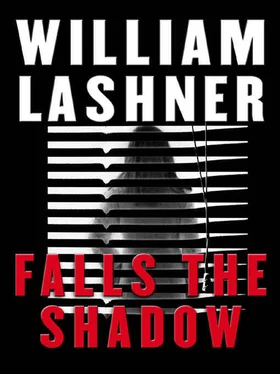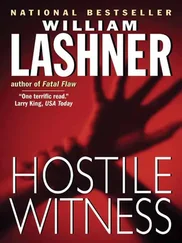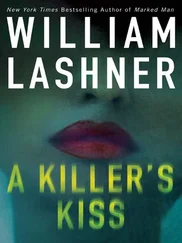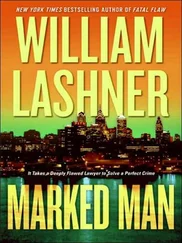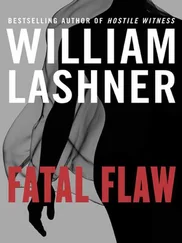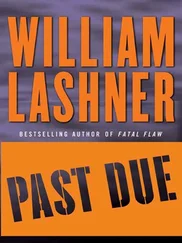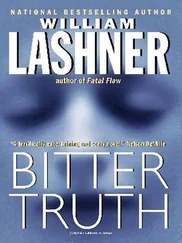It wasn’t much of a story, Darcy DeAngelo’s story of the affair. She worked under François in the kitchen, that she would end up under François in the bedroom was only to be expected. Commercial kitchens are like the bathhouses of the culinary set, bubbling pots of stock, prep guys with big knives, Wellfleet oysters, duck confit, earthy black truffles, demiglace, oui, oui . Late nights, after the crowd had gone home and the doors had been locked, sitting at the zinc bar François had imported from France, drinking champagne at cost, feeling the exhausted exuberance of two comrades who had just survived another night of the gastronomic wars. And she didn’t say it on the stand, but I could bet it was atop that very same bar that their affair was consummated. I have it on good authority that champagne and zinc are the two primary ingredients of Viagra.
“Mr. Carl,” said the judge after Dalton had led Darcy DeAngelo through the recitation of her affair with my client. “Do you have any questions?”
I did, actually, and I must admit that during most of her direct, I had been playing them out in my mind. “Do you like Mexican food, Ms. DeAngelo?” “Yes, actually, I do, Mr. Carl.” “I know this place on Thirteenth Street, supposed to be excellent.” “I’ve heard that it is.” “Do you think, Ms. DeAngelo, you can join me for dinner there on Saturday night?” “Oh, I think I can, Mr. Carl.” “Call me Victor.” “Okay, Victor. And please, call me-”
“Mr. Carl,” said the judge impatiently. “Do you have any questions for this witness?”
I stood, buttoned my jacket, looked at the pleasing figure of Darcy DeAngelo on the stand. The affair was a problem, absolutely, but I couldn’t deny its existence, and the witness, in her direct, had made it seem almost banal. Banal adultery was good, banal adultery is not an incentive for murder, simply an incentive for more and better adultery. There was one moment that had caused a tremor, when she testified that François had told her, “I’ll never let Leesa take my daughter from me, never.” Not good, absolutely, but in it came, over my useless objection, and there wasn’t much I could do with it. I could ask her if she ever saw violence in François, I could ask her if he was a tender lover and a tender man, I could try to use François’s adulterous lover as a character witness, but that seemed a little unseemly, didn’t it?
“No questions for this witness, Your Honor.”
“All right, Ms. DeAngelo, you are excused,” said the judge. “And I assume, Mr. Carl, at some point in these proceedings you’re going to ask a question or two.”
“I haven’t needed to yet, Judge, but I’m guessing that eventually Ms. Dalton will come up with something in this trial that’s actually relevant to the murder.”
“I’m sure she will. Next witness, Ms. Dalton.”
“The prosecution calls Arthur Gullicksen to the stand.”
This was trouble, totally expected, but trouble still. Arthur Gullicksen was an out-and-out shark, with three rows of pointy teeth and a shiny gray suit. Normally these are traits I greatly admire and do my best to emulate, but Dalton wasn’t calling Gullicksen to the stand to show off his bite.
Beth stood up as soon as Dalton stated the name. “Can we approach, Judge?” she said.
“Will this take a while, Ms. Derringer?”
“I suspect it will,” she said.
“Let’s have a recess, then. Fifteen minutes. Lawyers in my chambers.”
“Mr. Gullicksen, the prosecution’s next intended witness,” said Beth when all the lawyers, along with the clerk and the court reporter, had been wedged uncomfortably into the judge’s chambers, “was Leesa Dubé’s divorce attorney.”
“And your point is?” said the judge.
“In light of that unique relationship,” said Beth, “we believe it necessary to limit the bounds of his testimony.”
“Yes, yes, of course,” said the judge. “Mr. Gullicksen will not be able to testify about his privileged communications with the deceased. It would all be hearsay anyway. Is that satisfactory, Ms. Derringer?”
“As a start, yes, Judge. But we’d also like to limit any testimony that can be seen as the fruits of those privileged and hearsay communications.”
“Meaning what?”
“Meaning, we would like the prosecution to be barred from asking Mr. Gullicksen about the pleadings in the divorce case, as they would necessarily be based on statements you have already barred.”
“Interesting. Ms. Dalton?”
“The pleadings are public records, Judge,” said Dalton calmly, “and we intend to introduce them not to show the truth of the allegations within but as proof of their very existence and of their effect on the defendant’s state of mind.”
“But, Your Honor,” said Beth, “some of these allegations are so inflammatory as to be unduly prejudicial to our client.”
“What exactly are we talking about here, Counselor?”
“There was an allegation of harassment, of infidelity, of failure to pay child support, all of which had not yet been litigated at the time of the murder, and so no legal determination had yet been made.”
“I see,” said the judge.
“And there was also a rather spurious allegation of physical abuse of both Mrs. Dubé and the couple’s daughter, lodged by Leesa Dubé against her husband, along with a request for a restraining order.”
“Yes, I do see.”
“Your Honor, there was never any evidence presented in the divorce proceedings to support these allegations. They are entirely unsubstantiated, unduly prejudicial, and based solely on the hearsay statements of the deceased. Their introduction would unfairly inflame the jury and irrevocably taint these proceedings against our client.” Beth reached into her briefcase, pulled out numerous copies of a thick memorandum. “There are cases that support our position, and I have briefed the issue.”
“Anything in this jurisdiction on point?”
“Not directly, Judge, but there is a case from Alaska that is startlingly similar.”
“Which would be useful if we were trying this case in Nome. Ms. Dalton?”
“I understand Ms. Derringer’s anger. These are hurtful accusations that would upset anyone, especially if untrue. Which is the whole point here, Judge. Mr. Carl, in his opening, seemed to indicate that the Dubé divorce was amicable, which is absolutely false. This was a brutal, no-holds-barred fight for money and custody, with the direst accusations being thrown about.”
“And you believe the nature of the proceedings is an important part of the defendant’s motive?”
“A crucial part, Judge.”
“What will Mr. Gullicksen be testifying to?”
“The allegations in the divorce case coming from both sides and his observations of Mr. Dubé’s reaction to his wife’s accusations.”
“He wasn’t pleased, I take it.”
“No, sir, he was not. In fact, threats were made.”
“This is why I stay away from family court, criminal trials are so much more civil. And what would you have Mr. Gullicksen limited to testifying about, Ms. Derringer?”
“The weather?” said Beth.
“Okay,” said Judge Armstrong. “I’ve heard enough. I will read your memorandum, Ms. Derringer, because I so enjoy your writing, but I can tell you all now, I am inclined to give Ms. Dalton a free hand here. I, too, took note of Mr. Carl’s characterization of the divorce proceedings in his opening. He said the Dubés were working it out. The jury has the right to see exactly how. I will instruct the jury not to consider the truth of the accusations, only their effect on the defendant, but that’s as far as I will go.”
A few minutes later, as we waited in the courtroom for the judge to finish reading Beth’s memorandum before he could dismiss it outright and rule against us, Beth was still fretting over Gullicksen’s testimony.
Читать дальше
